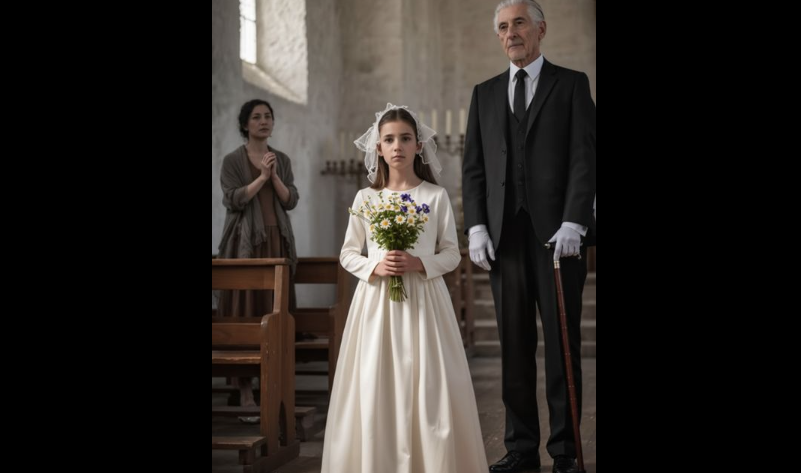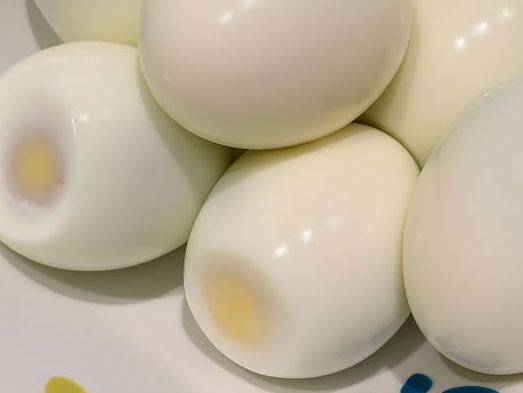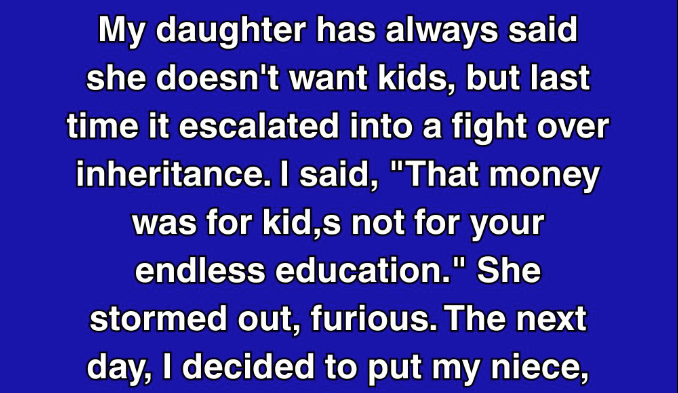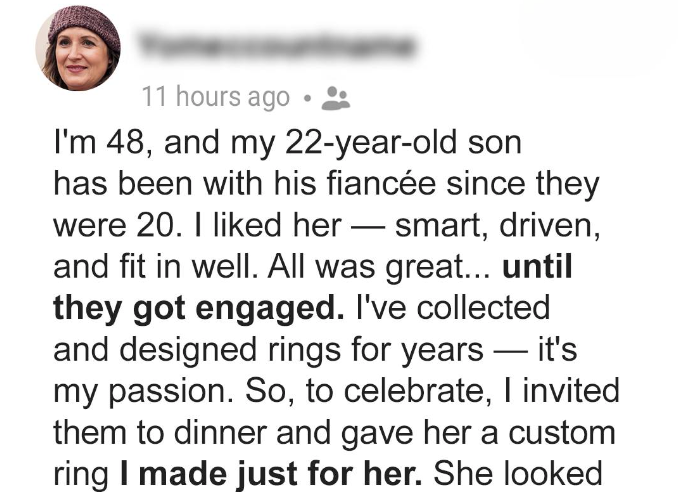I imagined that marrying Ysidro would weave a serene, velvet-smooth chapter into my life—until I discovered the box tucked beneath his bed, revealing secrets he’d kept hidden. Let’s say his wealth wasn’t the only treasure he’d amassed.
Our story began at the pharmacy. I was there for a discounted antibiotic; he was captivating the cashier with his charm. His witty remark made me laugh, and before I knew it, he was asking if I enjoyed wine. That was his signature—wine and warm company. I didn’t anticipate anything serious, but our connection deepened.
Ysidro wasn’t unappealing. His style was impeccable, his manners carried an old-world grace, and above all, he truly listened. When I shared that my mom struggled with rent and I juggled two jobs, he didn’t waver. He called it “undeserved for someone like you.” When he proposed, I hesitated briefly. Then I saw the ring. And I thought, secure.
He wasn’t extravagantly wealthy, but his home was fully paid for. He cooked thoughtful meals. He brought me tea in bed. A week into our marriage, I found myself… unwinding.
Then, while searching for a charger under the bed, I noticed a worn shoebox, sealed with duct tape. Curiosity prevailed.
Inside, I found stacks of envelopes, photographs, a pair of tiny ballet slippers, a birth certificate, and letters signed by someone named Amara. One letter read, “You promised to bring her back in 1997.”
That was when I first saw Ysidro’s hands tremble.
He entered the room as I leafed through a letter. His voice broke—“You shouldn’t be touching that.”
I stayed silent at first, then held up the pink, well-loved ballet slippers. “Who’s Amara?” I asked softly, though my pulse raced.
He sank onto the bed, rubbing his temples. “She was… someone I failed. A long time ago.”
I pressed further. “And the birth certificate? Who’s Noa Luna Martinez? That’s not your last name.”
Tears glistened in his eyes, catching me off guard. “My daughter,” he whispered. “No one knows. Not even my family.”
I blinked, stunned. “You have a daughter?”
He nodded, voice heavy. “Had. Maybe still do. I don’t know anymore.”
That shoebox was a vault of memories. And Ysidro? A man of contradictions.
Over the next hour, he shared more than I suspect he’d ever told anyone. He once worked maintenance at a ballet school where Amara, much younger, taught classes. Their affair was brief, hushed, but passionate. She became pregnant. He faltered.
His family was rigid. His parents had recently passed, and he was caring for his mentally ill sister. He told Amara he couldn’t be involved. Not then. He sent money occasionally but never met his daughter. Not once.
“She named her Noa Luna,” he said, staring into the distance. “She sent photos every year. Then, one day, they stopped.”
My hands trembled now. I’d married a man who’d left his child behind. Yet, seeing his broken expression, I felt a pang of empathy. The guilt had consumed him.
That night, sleep eluded me. The phrase haunted me: You promised to bring her back in 1997. What did it mean?
I found the envelope containing that letter, postmarked from Madrid, dated on Noa’s fourth birthday. Tucked inside was a plane ticket. One-way. LAX to Barajas. Ysidro had purchased it for her.
“Why didn’t she use it?” I asked him the next morning.
He shrugged, voice hollow. “I don’t know. She never replied again.”
The pieces didn’t fit. Why send a ticket, then disappear? I wondered if something darker had occurred.
The following week, while tidying a cabinet, I found an old Rolodex filled with outdated contacts—landlines, even faxes. On a whim, I searched for Amara S. on Facebook. Among hundreds of results, I narrowed it to Madrid. And there she was.
Her hair was gray now, but her elegance endured. Her profile picture showed her with a young woman—twenties, short curls, warm eyes. The caption read: My Luna, forever.
My heart skipped.
I clicked the tag. Noa Luna Martinez. The name matched the birth certificate.
Her face mirrored Ysidro’s—high cheekbones, wide-set eyes, even his subtle half-smile.
I showed Ysidro. He paled. “She’s alive,” he whispered. “And I missed it all.”
We didn’t reach out immediately. He was terrified. What could he say? Hi, I’m your absent father, now married to someone your age?
But the weight of it consumed him. He grew quieter, stopped cooking, and spent hours on the porch, gazing at nothing.
One night, I messaged Noa myself.
I was honest. “Hi, you don’t know me, but I’m married to Ysidro. I believe he’s your father. He’s… struggling. I’m not asking for anything, only letting you know he thinks of you.”
I didn’t expect a response.
But the next day, she replied.
She knew who he was. Her mother had always been open about him. She remembered the ticket. “She packed our bags,” Noa wrote. “I was four. I was excited. But he never came.”
That revelation stopped me.
“You mean… he didn’t show up at the airport?”
She responded: “We waited all day. She cried all night. Then she stopped writing him.”
I confronted Ysidro. “Why didn’t you go to the airport?”
He broke down. “I did. But I panicked. I saw them across the terminal. She looked so angry. I thought I’d ruin her life. So I left.”
He’d carried that choice for nearly three decades.
I told Noa the truth—that he’d been there but froze, and regretted it every day since.
She didn’t reply for a week.
Then she sent a photo of herself as a child, wearing those pink ballet slippers. Beneath it, she wrote: “Tell him I forgive him. But I’m not ready to meet yet.”
I read it to Ysidro. He held the photo like it was sacred, tears streaming.
Life softened after that. He seemed lighter, started cooking again, even hummed while tending the plants.
Three months later, Noa messaged. “I’m visiting California for work. I’d be okay with coffee.”
Ysidro looked haunted when I told him. “What would I say?” he asked. “What could I say after all this?”
I smiled. “Start with hello.”
They met at a café in Echo Park. I sat a few tables away, watching. When Noa walked in, Ysidro’s face transformed, glowing in a way I’d never seen.
They hugged—long, silent. The moment was invisible to others, but I felt its weight.
They talked for two hours. I didn’t ask what was said.
When Noa left, she passed me, offering a small nod. Her eyes were red, but her smile was genuine.
Ysidro emerged minutes later, eyes swollen but calm. “She likes croissants,” he said. “That’s something I know now.”
They began messaging often—weekly, then daily. She sent voice notes, short videos. He started calling her mija.
One day, she asked to visit our home and meet me. I was nervous—what would she think of me? But she hugged me like an old friend, saying, “Thanks for pulling him out of the shadows.”
That night, we shared dinner. Ysidro was radiant. Noa shared stories of Spain, her design career, her dog named Salchicha. Laughter came easily.
After dessert, she presented a small box containing adult-sized ballet slippers. “For you,” she told Ysidro. “In case you want to learn.”
He wept.
A year later, Ysidro passed peacefully in his sleep, clutching a photo of Noa.
He left the house to me, which shocked me. But his letter meant more. He wrote: “You thought you married me for security, but you gave it to me. You grounded me in the present and gave me courage to face my past. You brought my daughter back to me. That’s more than I ever deserved.”
Noa and I read it together. Her tears fell harder than mine.
Now, we stay connected. She visits, sends postcards. We run a small nonprofit in Ysidro’s name, “Luna Steps,” offering free dance lessons to kids who can’t afford them.
I still find traces of him in the house—a tie in a drawer, his favorite tea, the faint scent of his aftershave.
I miss him deeply.
But I have no regrets about marrying him.
What began as a practical choice became something profound, something greater than I’d imagined.
I sought stability.
Instead, I helped mend a life. Maybe two.
Maybe even my own.
If this story resonated with you, please share it—someone out there might be holding their own hidden shoebox.




